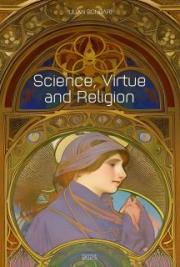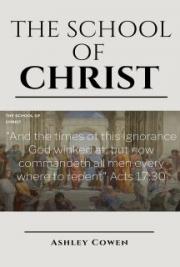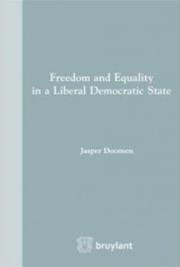which they benevolently disclosed has hitherto unnoticed illumined
philosophy in her desolate retreats, like a lamp shining on some
venerable statue amidst dark and solitary ruins. The prediction of the
master has been unhappily fulfilled in these his most excellent
disciples. "For an attempt of this kind," says he,[18]
"will only be
beneficial to a few, who from small vestiges, previously demonstrated,
are themselves able to discover these abstruse particulars. But with
respect to the rest of mankind, some it will fill with a contempt by no
means elegant, and others with a lofty and arrogant hope, that they shall
now learn certain excellent things." Thus with respect to these admirable
men, the last and the most legitimate of the followers of Plato, some
from being entirely ignorant of the abstruse dogmas of Plato, and finding
these interpreters full of conceptions which are by no means obvious to
every one in the writings of that philosopher, have immediately concluded
that such conceptions are mere jargon and revery, that they are not truly
Platonic, and that they are nothing more than streams, which, though,
originally derived from a pure fountain, have become polluted by distance
from their source. Others, who pay attention to nothing but the most
exquisite purity of language, look down with contempt upon every writer
who lived after the fall of the Macedonian empire; as if dignity and
weight of sentiment were inseparable from splendid and accurate diction;
or as if it were impossible for elegant writers to exist in a degenerate
age. So far is this from being the case, that though the style of
Plotinus[19] and Jamblichus[20] is by no means to be compared with that
of Plato, yet this inferiority is lost in the depth and sublimity of
their conceptions, and is as little regarded by the intelligent reader,
as motes in a sunbeam by the eye that gladly turns itself to the
solar light.
--------------
[17] See my Dissertation on the Mysteries.
[18]See the 7th Epistle of Plato.
[19] It would seem that those intemperate critics who have thought proper
to revile Plotinus, the leader of the latter Platonists, have paid no
attention to the testimony of Longinus concerning this most wonderful
man, as preserved by Porphyry in his life of him. For Longinus there
says, "that though he does not entirely accede to many of his hypotheses,
yet he exceedingly admires and loves the form of his writing, the density
of his conceptions, and the philosophic manner in which his questions are
disposed." And in another place he says, "Plotinus, as it seems, has
explained the Pythagoric and Platonic principles more clearly than those
that were prior to him; for neither are the writings of Numenius,
Cronius, Moderatus, and Thrasyllus, to be compared with those of Plotinus
on this subject." After such a testimony as this from such a consummate
critic as Longinus, the writings of Plotinus have nothing to fear from
the imbecile censure of modern critics. I shall only further observe,
that Longinus, in the above testimony, does not give the least hint of
his having found any polluted streams, or corruption of the doctrines of
Plato, in the works of Plotinus. There is not indeed the least vestige of
his entertaining any such opinion in any part of what he has said about
this most extraordinary man. This discovery was reserved for the more
acute critic of modern times, who, by a happiness of conjecture unknown
to the ancients, and the assistance of a good index, can in a few days
penetrate the meaning of the profoundest writer of antiquity, and bid
defiance even to the decision of Longinus.
[20] Of this most divine man, who is justly said by the emperor Julian to
have been posterior indeed in time, but not in genius even to Plato himself,
see the life which I have given in the History of the Restoration of the
Platonic Theology, in the second vol. of my Proclus on Euclid.
----------------------
As to the style of Porphyry, when we consider that he was the disciple of
Longinus, whom Eunapius elegantly calls "a certain living library, and
walking museum," it is but reasonable to suppose that he imbibed some
portion of his master's excellence in writing. That he did so is
abundantly evident from the testimony of Eunapius, who particularly
commends his style for its clearness, purity, and grace.
"Hence," he
says, "Porphyry being let down to men like a mercurial chain, through his
various erudition, unfolded every thing into perspicuity, and purity."
And in another place he speaks of him as abounding with all the graces of
diction, and as the only one that exhibited and proclaimed the praise of
his master. With respect to the style of Proclus, it is pure, clear and
elegant, like that of Dionysius Halicarnassus; but is much more copious
and magnificent; that of Hierocles is venerable and majestic, and nearly
equals the style of the greatest ancients; that of Sallust possesses an
accuracy and a pregnant brevity, which cannot easily be distinguished
from the composition of the Stagirite; and lastly, that of Damascius is
clear and accurate, and highly worthy a most investigating mind.
Others again have filled themselves with a vain confidence, from reading
of commentaries of these admirable interpreters, and have in a short time
considered themselves superior to their masters. This was the case with
Ficinus, Picus, Dr. Henry Moore, and other pseudo Platonists, their
contemporaries, who, in order to combine Christianity with the doctrines
of Plato, rejected some of his most important tenets, and perverted
others, and thus corrupted one of these systems, and afforded no real
benefit to the other.
But who are the men by whom these latter interpreters of Plato are
reviled? When and whence did this defamation originate?
Was it when the
fierce champions for the trinity fled from Galilee to the groves of
Academus, and invoked, but in vain, the assistance of Philosophy? When
The trembling grove confessed its fright, The wood-nymphs started at the sight; Ilissus backward urg'd his course, And rush'd indignant to his source.
Was it because that mitred sophist, Warburton, thought fit to talk of the
polluted streams of the Alexandrian school, without knowing any thing of
the source whence those streams are derived? Or was it because some heavy
German critic, who knew nothing beyond a verb in mi, presumed to grunt at
these venerable heroes? Whatever was its source, and whenever it
originated, for I have not been able to discover either, this however is
certain, that it owes its being to the most profound Ignorance, or the
most artful Sophistry, and that its origin is no less contemptible than
obscure. For let us but for a moment consider the advantages which these
latter Platonists possessed beyond any of their modern revilers. In the
first place, they had the felicity of having the Greek for their native
language, and must therefore, as they were confessedly, learned men, have
understood that language incomparably better than any man since the time
in which the ancient Greek was a living tongue. In the next place, they
had books to consult, written by the immediate disciples of Plato, which
have been lost for upwards of a thousand years, besides many Pythagoric
writings from which Plato himself derived most of his more sublime
dogmas. Hence we find the works of Parmenides, Empedocles, the Electic
Zeno, Speusippus, Xenocrates, and many other illustrious philosophers of
the highest antiquity, who were either genuine Platonists or the sources
of Platonism, are continually cited by these most excellent interpreters,
and in the third place they united the greatest purity of life to the
most piercing vigor of intellect. Now when it is considered that the
philosophy to the study of which these great men devoted their lives, was
professedly delivered by its author in obscurity; that Aristotle himself
studied it for twenty years; and that it was no uncommon thing, as Plato
informs us in one of his Epistles, to find students unable to comprehend
its sublimest tenets even in a longer period than this,-
-when all these
circumstances are considered, what must we think of the arrogance, not to
say impudence, of men in the seventeenth, eighteenth, and nineteenth
centuries, who have dared to calumniate these great masters of wisdom? Of
men, with whom the Greek is no native language; who have no such books to
consult as those had whom they revile; who have never thought, even in a
dream, of making the acquisition of wisdom the great object of their
life; and who in short have committed that most baneful error of
mistaking philology for philosophy, and words for things? When such as
these dare to defame men who may be justly ranked among the greatest and
wisest of the ancients, what else can be said than that they are the
legitimate descendants of the suitors of Penelope, whom, in the animated
language of Ulysses,
Laws or divine or human fail'd to move, Or shame of men, or dread of gods above: Heedless alike of infamy or praise, Or Fame's eternal voice in future days,[21]
-----------------
[21] Pope's Odyssey, book xxii, v. 47, &c.
-----------------
But it is now time to present the reader with a general view of the works
of Plato, and, also to speak of the preambles, digressions, and style of
their author, and of the following translation. In accomplishing the
first of these, I shall avail myself of the synopsis of Mr. Sydenham,
taking the liberty at the same time of correcting it where it appears to
be erroneous, and of making additions to it where it appears to be
deficient.
The dialogues of Plato are of various kinds; not only with regard to
those different matters, which are the subjects of them; but in respect
of the manner also in which they are composed or framed, and of the form
under which they make their appearance to the reader. It will therefore,
as I imagine, be not improper, in pursuance of the admonition given us by
Plato himself in his dialogue named Phaedrus[22] and in imitation of the
example set us by the ancient Platonists to distinguish the several
kinds; by dividing them, first, into the most general; and then,
subdividing into the subordinate; till we come to those lower species,
that particularly and precisely denote the nature of the several
dialogues, and from which they ought to take their respective
denominations.
----------------
[22] Whoever is unable to divide and distinguish things into their
several sorts or species; and, on the other hand, referring every
particular to its proper species, to comprehend them all in one general
idea; will never understand any writings of which those things are the
subject, like a true critic, upon those high principles of art to which
the human understanding reaches. We have thought proper, here, to
paraphrase this passage, for the sake of giving to every part of so
important a sentence its full force, agreeably to the tenor of Plato's
doctrine; and in order to initiate our readers into a way of thinking,
that probably many of them are as yet unacquainted with.
----------------
The most general division of the writings of Plato, is into those of the
Sceptical kind, and those of they Dogmatical. In the former sort, nothing
is expressly either proved or asserted, some philosophical question only is
considered and examined; and the reader is left to himself to draw such
conclusions, and discover such truths as the philosopher means to
insinuate. This is done, either in the way of inquiry, or in the way of
controversy and dispute. In the way of controversy are carried on all such
dialogues, as tend to eradicate false opinions; and that, either indirectly,
by involving them in difficulties, and embarrassing the maintainers of them;
or directly, by confuting them. In the way of inquiry proceed those whose
tendency is to raise in the mind right opinions; and that either by exciting
to the pursuit of some part of wisdom, and showing in what manner to
investigate it; or by leading the way, and helping the mind forward in the
search. And this is effected by a process through opposing arguments.[23]
------------------
[23] It is necessary to observe that Plato in the Parmenides calls all
that part of his Dialectic, which proceeds through opposite arguments, an
exercise and wandering.
------------------
The dialogues of the other kind, the Dogmatical or Didactic, teach
explicitly some point of doctrine; and this they do either by laying it
down in the authoritative way, or by proving it in the ways of reason and
argument. In the authoritative way the doctrine is delivered, sometimes by
the speaker himself magisterially, at other times as derived to him by
tradition from wise men. The argumentative or demonstrative method of
teaching, used by Plato, proceeds in all the dialectic ways, dividing,
defining, demonstrating, and analysing; and the object of it consists in
exploring truth alone. According to this division is framed the following
scheme, or table:
DIALOGUES[24]
Sceptical Disputative Embarrassing Confuting Inquisitive Exciting Assisting
Dogmatical Demonstrative Analytical Inductional Authoritative Magisterial
Traditional
-----------------
[24]We have, given us by Diogenes Laertius, another division of the
characters, as he calls them, of Plato's writings, different from that
exhibited in the scheme above. This we have thought proper to subjoin, on
account of its antiquity and general reception.
Dialogues
Diadectic Speculative Physical Logical Practical Ethical Political
Inquisitive Gymnastic Maieutic Peirastic Agonistic Endeietic Anatreptic
The learned reader will observe the latter half of the dialogues, according
to this scheme, to be described by metaphors taken from the gymnastic art:
the dialogues, here termed gymnastic, being imagined to bear a similitude
to that exercise; the agonistic, to the combat. In the lowest subdivision,
indeed, the word maieutic is a metaphor of another kind, fully explained in
Plato's Theaetetus: the maieutic dialogues, however, were supposed to
resemble giving the rudiments of the art; as the peirastic were, to
represent a skirmish, or trial of proficiency; the endeietic were, it
seems, likened to the exhibiting a specimen of skill; and the anatreptic,
to presenting the spectacle of a thorough defeat, or sound drubbing. The
principal reason why we contented not ourselves with this account of the
difference between the dialogues of Plato, was the capital error there
committed in the first subdivision, of course extending itself through the
latter. This error consists in dividing the Didactic dialogues with regard
to their subject-matter; while those of the Inquisitive sort are divided
with respect to the manner of their composition. So that the subdivisions
fall not, with any propriety, under one and the same general head. Besides,
a novice in the works of Plato might hence be led naturally to suppose,
that the dogmatical or didactic dialogues are, all of them, written in the
same manner; and that the others, those of the inquisitive kind, by us
termed sceptical, have no particular subjects at all; or, if they have,
that their subjects are different from those of the didactic dialogues,
and are consequently unphilosophical. Now every one of the suppositions
here mentioned is far from being true.
----------------
The philosopher, in thus varying his manner, and diversifying his
writings into these several kinds, means not merely to entertain with
their variety; not to teach, on different occasions, with more or less
plainness and perspicuity; not yet to insinuate different degrees of
certainty in the doctrines themselves: but he takes this method, as a
consummate master of the art of composition in the dialogue-way of
writing, from the different characters of the speakers, as from different
elements in the frame of these dramatic dialogues, or different
ingredients in their mixture, producing some peculiar genius and turn of
temper, as it were, in each.
Socrates indeed is in almost all of them the principal speaker: but when
he falls into the company of some arrogant sophist; when the modest
wisdom, and clear science of the one, are contrasted with the confident
ignorance and blind opinionativeness of the other; dispute and
controversy must of course arise: where the false pretender cannot fail
of being either puzzled or confuted. To puzzle him only is sufficient,
if there be no other persons present; because such a man can never be
confuted in his own opinion: but when there is an audience round them,
in danger of being misled by sophistry into error, then is the true
philosopher to exert his utmost, and the vain sophist to be convicted
and exposed.
In some dialogues Plato represents his great master mixing in
conversation with young men of the best families in the commonwealth.
When these happen to have docile dispositions and fair minds, then is
occasion given to the philosopher to call forth[25] the latent seeds of
wisdom, and to cultivate the noble plants with true doctrine, in the
affable and familiar way of joint inquiry. To this is owing the
inquisitive genius of such dialogues: where, by a seeming equality in the
conversation, the curiosity or zeal of the mere stranger is excited; that
of the disciple is encouraged; and, by proper questions, the mind is
aided and forwarded in the search of truth.
-----------------
[25] We require exhortation, that we may be led to true good; dissuasion,
that we may be turned from things truly evil; obstetrication, that we may
draw forth our unperverted conceptions; and confutation, that we may be
purified from two-fold ignorance.
-----------------
At other times, the philosophic hero of these dialogues is introduced
in a higher character, engaged in discourse with men of more improved
understandings and enlightened minds. At such seasons he has an
opportunity of teaching in a more explicit manner, and of discovering
the reasons of things: for to such an audience truth is due, and all
demonstrations[26] possible in the teaching it. Hence, in the dialogues
composed of these persons, naturally arises the justly argumentative or
demonstrative genius; and this, as we have before observed, according to
all the dialectic methods.
-----------------
[26] The Platonists rightly observe, that Socrates, in these cases, makes
use of demonstrative and just reasoning, ([Greek: apodeiktikou]); whereas
to the novice he is contented with arguments only probable, ([Greek:
pithanois]); and against the litigious sophist often employs such as are
[Greek: eristikoi]; puzzling and contentious.
-----------------
But when the doctrine to be taught admits not of demonstration; of which
kind is the doctrine of antiquities, being only traditional, and a matter
of belief; and the doctrine of laws, being injunctional, and the matter of
obedience; the air of authority is then assumed: in the former cases, the
doctrine is traditionally handed down to others from the authority of
ancient sages; in the latter, is magisterially pronounced with the
authority of a legislator.[27]
-----------------
[27] It is necessary to observe, that in those dialogues in which Socrates
is indeed introduced, but sustains an inferior part, he is presented to
our view as a learner, and not as a teacher; and this is the case in the
Parmenides and Timaeus. For by the former of these philosophers he is
instructed in the most abtruse theological dogmas, and by the latter in
the whole of physiology.
-----------------
Thus much for the manner in which the dialogues of Plato are severally
composed, and the cast of genius given them in their composition. The
form under which they appear, or the external character that marks them,
is of three sorts: either purely dramatic, like the dialogue of tragedy
or comedy; or purely narrative, where a former conversation is supposed
to be committed to writing, and communicated to some absent friend; or of
the mixed kind, like a narration in dramatic poems, where is recited, to
some person present, the story of things past.
Having thus divided the dialogues of Plato, in respect of that inward
form or composition, which creates their genius; and again, with
reference to that outward form, which marks them, like flowers and other
vegetables, with a certain character; we are further to make a division
of them, with regard to their subject and their design; beginning with
their design, or end, because for the sake of this are all the subjects
chosen. The end of all the writings of Plato is that, which is the end of
all true philosophy or wisdom, the perfection and the happiness of man.
Man therefore is the general subject; and the first business of philosophy
must be to inquire what is that being called man, who is to be made happy;
and what is his nature, in the perfection of which is placed his happiness.
As however, in the preceding part of this Introduction, we have endeavored
to give the outlines of Plato's doctrine concerning man, it is unnecessary
in this place to say any thing further on that subject.
The dialogues of Plato, therefore, with respect to their subjects, may be
divided into the speculative, the practical, and such as are of a mixed
nature. The subjects of these last are either general, comprehending both
the others; or differential, distinguishing them. The general subject are
either fundamental, or final: those of the fundamental kind are philosophy,
human nature, the soul of man; of the final kind are love, beauty, good.
The differential regard knowledge, as it stands related to practice; in
which are considered two questions: one of which is, whether virtue is to
he taught; the other is, whether error in the will depends on error in
the judgment. The subjects of the speculative dialogues relate either to
words, or to things. Of the former sort are etymology, sophistry, rhetoric,
poetry; of the latter sort are science, true being, the principles of
mind, outward nature. The practical subjects relate either to private
conduct, and the government of the mind over the whole man; or to his
duty towards others in his several relations; or to the government of a
civil state, and the public conduct of a whole people.
Under these three
heads rank in order the particular subjects practical; virtue in general,
sanctity, temperance, fortitude, justice, friendship, patriotism, piety;
the ruling mind in a civil government, the frame and order of a state,
law in general, and lastly, those rules of government and of public
conduct, the civil laws.
Thus, for the sake of giving the reader a scientific, that is a
comprehensive, and at the same time a distinct view of Plato's writings,
we have attempted to exhibit to him, their just and natural distinctions;
whether he chooses to consider them with regard to their inward form or
essence, their outward form or appearance, their matter; or







